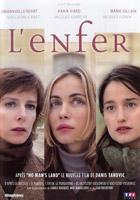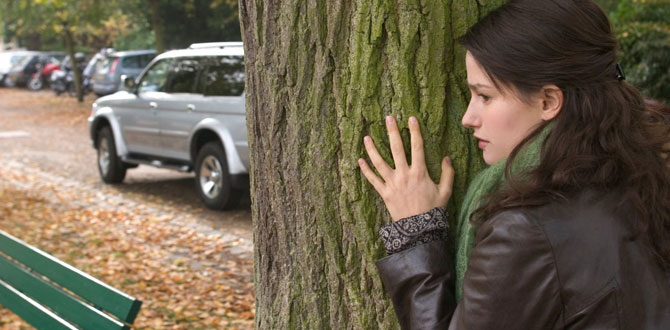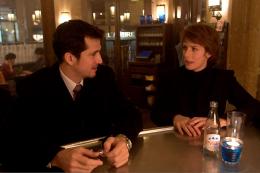My Writings

Review - L'Enfer (Inferno/Hell) (2005)
Bosnian director Danis Tanovic has skilfully adapted a 30 page draft of a script written by famed Polish director Krystof Kieslowski (Dekalog, Three Colours trilogy) and long time collaborator Krystof Piesiewicz. Kieslowski's intention was to complete a trilogy based on the epic Medieval work The Divine Comedy by Italian poet Dante Alighieri, using its three sections; 'Hell', 'Purgatory' and 'Heaven'. Dante describes Hell as consisting of nine concentric circles, which must be traversed by recognising and rejecting sin. Tanovic uses circular images throughout the movie - circular hotel corridors, spiral staircases, kaleidoscopes, and subtle circular camera movements. No surprise then that the seats at the nursing home where the mother of 3 sisters (Carole Bouquet) resides have circular trims and rounded seats. In The Divine Comedy the lowest form of beings in hell are the traitors, who are encased in ice and unable to speak. Mother has also lost her tongue, so communicates using a writing pad to the only one of her daughters who visits, middle sister Celine (Karin Viard, excellent).
The film begins with a girl who makes a shocking discovery when she enters a scholastic office to find a naked youth in the arms of a man, who we later learn is her father (Miki Manojlovic). Whilst paying homage to Dante, the movie has its own philosophy and examines the difference between coincidence and destiny. It uses sympathetic characterisation to involve its audience, and isn't afraid to raise intellectual questions for them to consider. Is this opening scene, destiny or coincidence?
Latest Works

The youngest sister Anne (Marie Gillain) is a post graduate student, dangerously in love with a much older man, college professor Frederic (Jacques Perrin), who rejects her after an affair. In a lecture Frederic explains that man invented coincidence as a means of allowing faith and destiny to co-exist, but that destiny devoid of reason, for example an entirely accidental death, would have the hollowness of coincidence and be devoid of any spirituality. Anne makes a number of attempts to prevent the end of their affair, including applying for a job with the same faculty. In the interview she is called upon to discuss Medea by Euripides. When Medea is betrayed by Jason, her jealousy is so great, that she slays her own children to punish him. Anne postulates that a tragedy such as this is not possible in modern life, because we no longer believe in God. As we have no faith, tragedy is replaced by mere drama. Anne hopes Frederic might take her back, but he has taken a trip to Greece to avoid the confrontation. Ironically he is killed in an accident.

The bond between the 3 sisters is tenuous, yet intriguing. The mystery as to why they split apart and the link to the opening scene is gradually pieced together. Early in the movie, the father is seen leaving prison where he has been jailed for homosexuality. There is no-one to meet him. Worse, when he gets back home wanting to see his three daughters, his wife fiercely tries to prevent him, and a violent struggle commences. When his daughters are complicit, and will not open their bedroom door so he can see them, he reacts to their betrayal by leaping to his death from the window.
Some years later, eldest sister Sophie (Emmanuelle Beart, terrific) is residing in the same house, and is having extreme marital problems of her own. Humiliated by her husband's affairs, she becomes obsessed in finding concrete proof of his latest infidelity. She finds proof in Maryam d'Abo's character Julie, but it is too late for her to save the marriage. Her husband (Jacques Gamblin) further humiliates her by rejecting her physically.